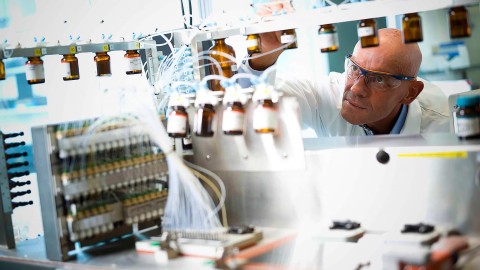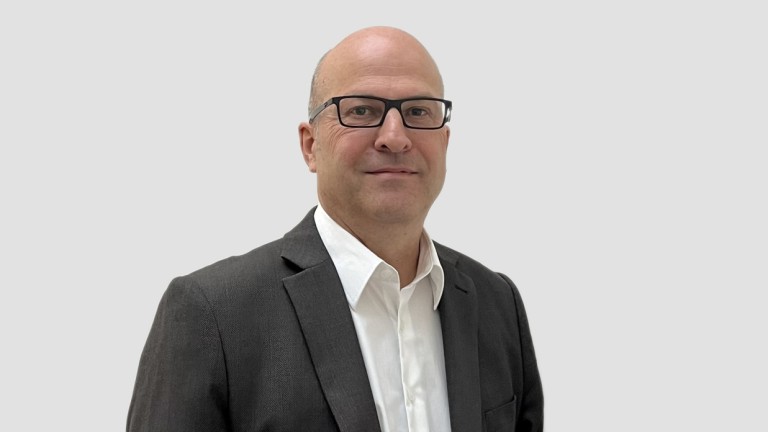Laboratory services: The chemistry must be right
Support from external service providers? At the lab? Much too small-scale. Much too close to valuable company secrets. And then there’s the shortage of skilled workers: It’s hard enough to put together your own hand-picked team and keep everyone on task. But we’re supposed to bring in outsiders, too? That was the prevailing attitude – at least until recently. A paradigm shift is now taking place in many companies.
In the past, everyone knew that outsourcing should be used for non-core processes that added less value and were too simple to waste on your own highly skilled workforce. Logistics and waste disposal, for example, are two classic areas that have long been handled by specialized service providers in many industries.
Chemicals and pharmaceuticals: above-average requirements
But not all transportation is the same, and not all waste disposal is the same. Obviously, chemicals – some of which are highly toxic – have to be transported differently than printed user manuals. Laboratory equipment has to be rinsed differently than coffee cups. And different disposal rules apply to acids and bases than to waste paper. Even “simple” activities in and around the laboratory require more extensive training. Managers have to keep abreast of the constantly changing regulatory landscape.
In smaller laboratories, tasks are still assigned in a way that closely combines core and non-core processes. So closely, in fact, that it is difficult to separate them in terms of staffing – with the possible exception of the dishwasher. In all other respects, all lab technicians do everything that falls in their area of responsibility. However, once you have 30 or more people working at a lab, it becomes increasingly clear that splitting up the work can yield significant synergies and thus significantly increase laboratory output.
A wide range of activities
The complexity of laboratory activities does not mean that you have to do all the work in-house. On the contrary: The activities are so wide-ranging that a suitably positioned service provider can support far more areas than would be possible in many other industries. The spectrum ranges from replenishing material cabinets to supplying skilled workers. “Just think about stocking chemicals and work equipment,” said Frank Pauli, Head of Facilities Operations at Infraserv Höchst. “How often do you get stressed out at work because some substance or device is unavailable once again? Then you have the question of who was supposed to replenish it. Not to mention the waste of time ...” “But you can outsource more tasks than just consumption monitoring, procurement and maintenance. A competent service provider can take on highly lab-specific tasks such as performing serial analyses as well as non-lab-specific tasks such as maintaining and managing databases.
“If requested, Infraserv Höchst will provide the legally required OSH specialist,” said Christopher Alt, Head of the Environmental and Process Analysis Department.
In fact, a specialized service provider for lab facilities can make important contributions before actual lab operations even begin.
“Thanks to our decades of experience, we can start providing customers with important tips during the construction planning phase of a new laboratory,” said Alt. “Here is an example: Properly arranged sinks and fume hoods can play a big role in optimizing workflows. That’s not something any architect can just pull out of their sleeve.”
A close relationship of trust
That’s yet another good reason for placing as many of the outsourced services as possible with one provider. However, few companies on the market can match Infraserv’s broad range of laboratory services – click here for a cross-section of our lab services .
Our roots are in Industriepark Höchst and thus in the chemical and pharmaceutical industry. However, we have more than just the necessary expertise; we can provide urgently needed skilled workers as well.
Christopher Alt, Head of the Environmental and Process Analysis Department
Where does Infraserv get the people when the market is otherwise drained? “We can constantly draw on an extensive pool of skilled employees through Provadis’ recruitment organization. And we constantly train new people ourselves, too.” Training is provided through Infraserv’s own Provadis school and its ZEUS learning platform for virtually all laboratory jobs, from chemical technician to lab technician to chemical engineer. Specialized training for auxiliary staff is also part of the portfolio. Basic and advanced training courses are also available to customers’ employees.
A clear roadmap
The best approach for making a business partnership work is to proceed one step at a time using a modular approach. This gives the customer maximum security. All relevant employees are brought on board, while the provider can supply all the services with care and in the required quality. To do this, however, the provider and the customer have to first sit down and develop a roadmap. After all, each customer has its own priorities about the services it plans to farm out.
As a designer and operator of a vast and diverse portfolio of laboratories throughout Germany, we speak your language and can support you at every stage of your lab’s lifecycle, even in a regulated environment. The actual range of services we offer depends entirely on your individual needs and wishes.







